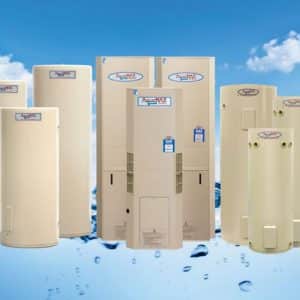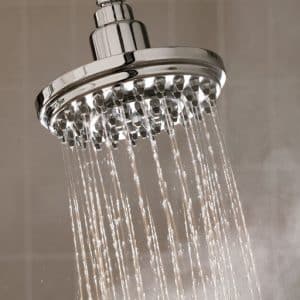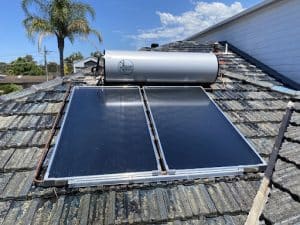
4 Advantages of an AquaMax Hot Water System
If you are looking for a hot water system that

Every day more Australians are making the switch to solar hot water systems. Why? With energy bills rising and climate change growing, many are trading in their electric and gas hot water systems, favouring an energy-efficient home.
Water heating contributes roughly 25 per cent to the average household’s energy usage. In effect, this costs hundreds, and in some cases thousands, of dollars each year. However, there are lots of energy-efficient hot water alternatives on the market. Opting to use solar power instead of a gas storage tank, continuous flow system, or an electric hot water system will save you money in the long run.
But what are solar water heaters, and how do they differ from gas or electric water heaters? Is changing to solar energy worth it? Atomic Hot Water Repairs answers these questions and more in this guide.
Solar hot water systems act much like a battery. When it comes to solar water heating, the system consists of collector panels and a storage tank. These collector panels absorb energy from the sun and transfer this to heat water inside the storage tank.
Hot water systems can work in two ways regarding solar heating, actively or passively. The main difference is that active systems keep the water heated using circulating pumps, while passive systems require heated pipes to keep the water hot as it moves through your home.
Active systems can heat water by either utilising stored sunlight or a heat exchanger. Many households select active solar hot water systems because they are more reliable than passive systems. Active systems maintain water temperature during the pump’s motion, while passive systems store solar energy and heat the water before moving. This process makes passive systems vulnerable in colder climates.
These systems also differ in their configuration, with active mostly coming in split units – panel and tank separate – and passive being together. Since cloudy days interfere with the collector panels receiving solar energy, active solar hot water systems also feature electric or gas boosters to ensure hot water is always available.
Solar hot water systems are available in three main types – flat panel collectors, evacuated tube collectors, and heat pump systems. At Atomic Hot Water Repairs, we offer a wide range of top solar hot water system brands suitable for any home and backed by our lifetime labour warranty!
1. Flat Plate Collectors: This system uses a large solar panel heat exchanger to absorb sunlight and transfer heat to an insulated storage tank. Out of all the available solar hot water systems, flat plate collectors tend to be the most affordable. They are easy to install, require little maintenance, and are easy to manufacture, making them a cheaper alternative.
The system comes in two variations, roof-mounted and split. As the name suggests, roof-mounted have both the tank and collector on the roof, and split systems move the tank to the ground. Regardless of your set-up selection, your hot water output will remain the same.
2. Evacuated Tube Collectors: Unlike flat plates, evacuated tube collectors feature a series of tubes that remove air using a vacuum seal. The seal allows for efficient heat transfer to the stored water and makes evacuated tube collectors more effective than flat plate collectors.
This system is also more effective because it captures more sunlight with its greater surface area, is more durable and less prone to replacement and can work in colder temperatures. However, evacuated tube collectors have the most expensive upfront costs.
3. Heat Pump Hot Water Systems: Many people don’t consider heat pumps solar-powered hot water systems. This belief is because heat pumps don’t collect sunlight conventionally like flat plates and evacuated tubes. Instead, heat pump solar systems pull solar heat out of the air and use this to heat water.
Although it uses electricity to remove heat from the air, it uses 75 per cent less than conventional electric systems.
Making the switch from gas or electric to solar comes with many sustainable benefits. Most notably:
Like any product, there are always a few disadvantages to consider. For solar water heating, these include:
If you’re experiencing high energy bills, use hot water regularly, and live in a sunny area, installing solar hot water is your best option. While it may seem like a steep investment initially, relying on solar energy is considerably cheaper than anything else. It also lessens the environmental impact other hot water systems cause.
At Atomic Hot Water Repairs, we recommend the following types of systems for each consideration.
For all your solar hot water advice, installation, and maintenance, contact us at service@atomichotwater.com.au or call us at 1300 763 734. Atomic Hot Water Repairs offer honest and professional service to your door. We pride ourselves on providing efficient and reliable hot water service across Sydney at an affordable price. No job is too big or small!

If you are looking for a hot water system that

Your hot water system will inevitably break down while you

If you want a hot water system that is good
